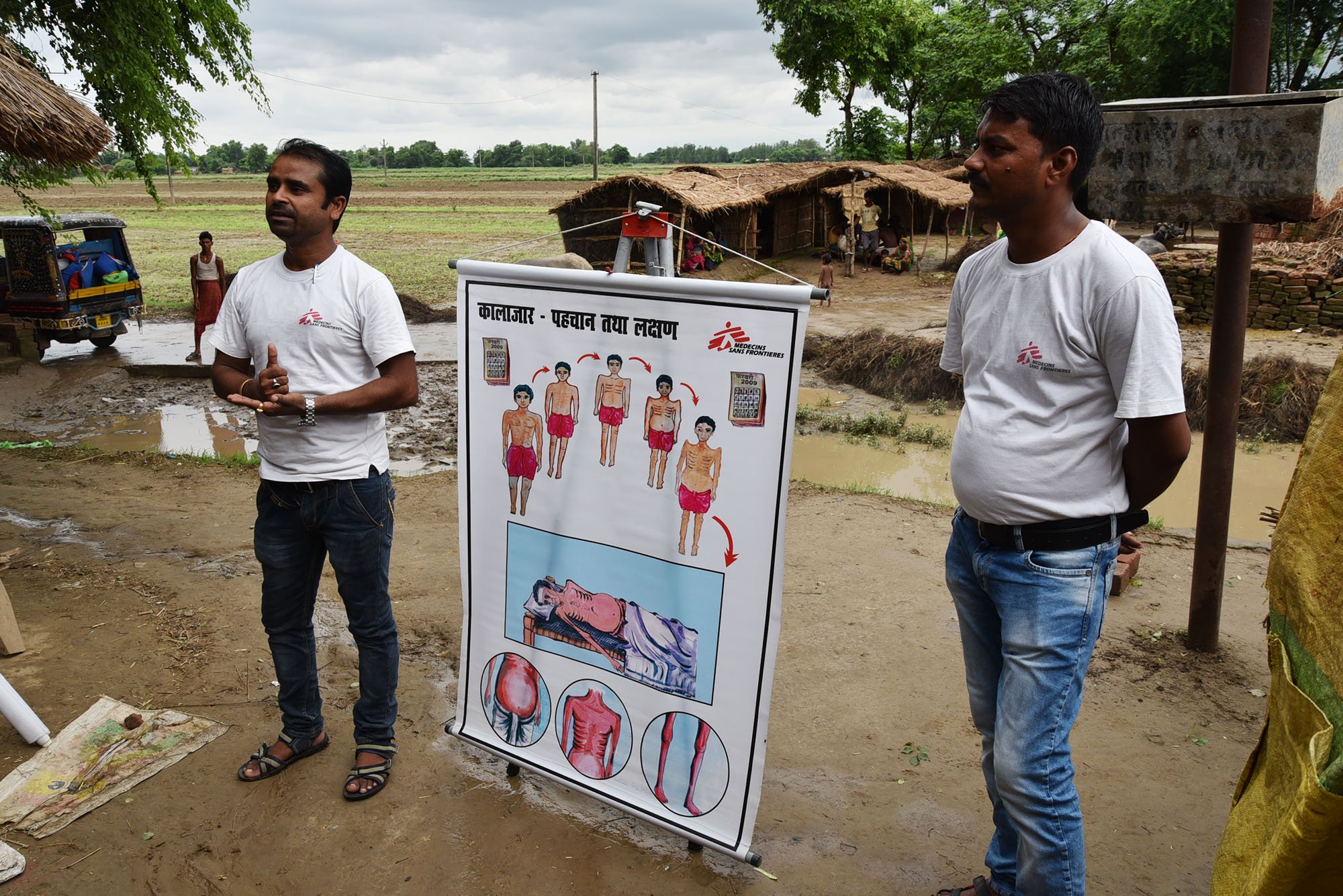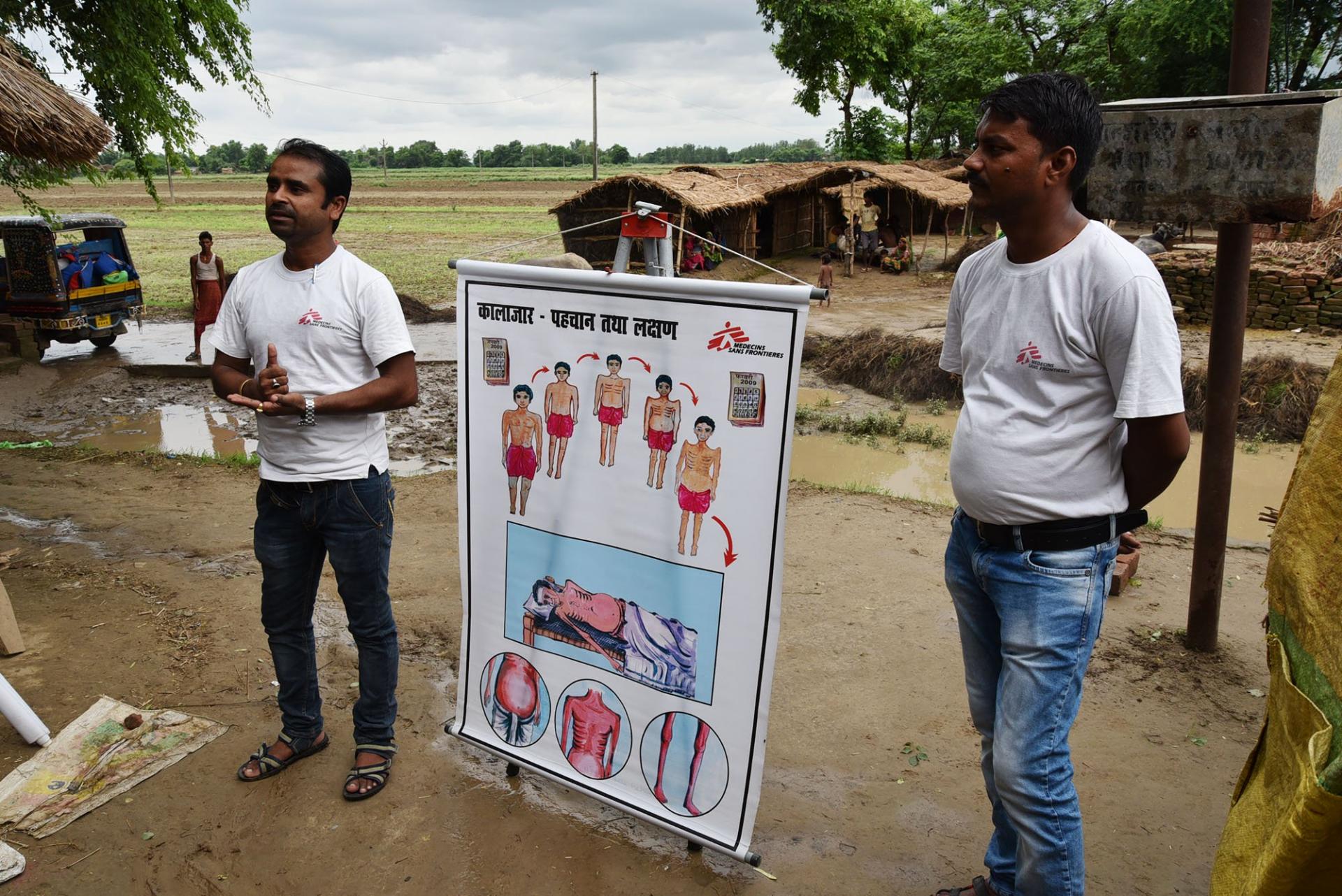Kisto Devi likes to sing. For more than ten years now, Kisto has been using her voice to spread health messages in her community. She is an Accredited Social Health Activist or ASHA, tirelessly reaching out to hundreds of villagers through her songs.
ASHAs, meaning hope in Hindi, are women who are identified, trained and accredited by India’s Ministry of Health and Family Welfare to conduct health screenings and referrals of sick patients to the nearest government health facility at the community level.
Their role is to detect and refer those who need immunisations, a health checkup or treatment, and are at the forefront of community health service on behalf of the government. Typically, there is one ASHA per 1,000 inhabitants.
"We are not medical technicians or specialists, but we know a little about the diseases of this region; for instance, we know everything about kala azar," says Kisto.

Kala azar, a forgotten tropical disease
Virtually unknown in the developed world, leishmaniasis is a vector-borne parasitic disease that affects more than 12 million people throughout the world today. Visceral leishmaniasis or kala azar is one form of leishmaniasis that is most prevalent in six countries: Bangladesh, Brazil, Ethiopia, India, South Sudan and Sudan.
Transmitted by the bite of an infected sand fly, kala azar mainly affects populations with the least resources. The disease weakens the immune system making the patients more susceptible to opportunistic infections. And it’s almost always fatal if left untreated.
Vaishali is one of the most endemic districts in Bihar, a state known to contribute around 80-90% of the kala azar cases in India. Bihar is also one of the poorest states with a population of more than 100 million.
With the highest endemicity and concentration of people with poor resources, Bihar set the stage for MSF to intervene and start a kala azar treatment programme in 2007. MSF successfully ran a 50-bed kala azar ward, supported five Primary Health Centres (PHCs) in Vaishali and has treated more than 12,000 kala azar patients, free of cost.
From conducting awareness sessions to ensuring rapid diagnosis and treatment for the patients, MSF has partnered with government agencies to ensure that treatment is not only effective but free for all.
Songs to remember
To support MSF’s work, Kisto Devi does what she knows best: she scripts songs on kala azar; melodies that are set to popular Bollywood tunes from the 80s and 90s. She tells everything there is to know about the disease – its symptoms, transmission, and treatment.
When Kisto Devi sings she points to the mud walls, to the buffalos and the dirt around the cowsheds to inform and educate people about the habitat of sand flies.
"It is a very practical way to generate awareness about kala azar - without relying on posters, writing, or anything else that are sometimes difficult to understand," says Chhavi Kumar, a health promoter with MSF.
Kisto has devoted her life to community work. She was trained by MSF and knows all too well the work the organisation has done in Bihar for the past eight years.
ASHAs like Kisto not only focus on kala azar but also conduct a range of screenings and referrals: they help pregnant women seek facility-based deliveries, ensure timely vaccinations for infants, screen patients suffering from infectious disease such as tuberculosis, and assist in awareness-building around public health issues, hygiene and sanitation, and ways to access proper treatment and care.
"I have known many people who have suffered from kala azar but didn’t know they had the disease. Some thought it was malaria. I help people identify the symptoms correctly and tell them what to do,’’ says Kisto. “I like singing for them,’’ she adds with a smile.
Find out more about MSF's work in India.
